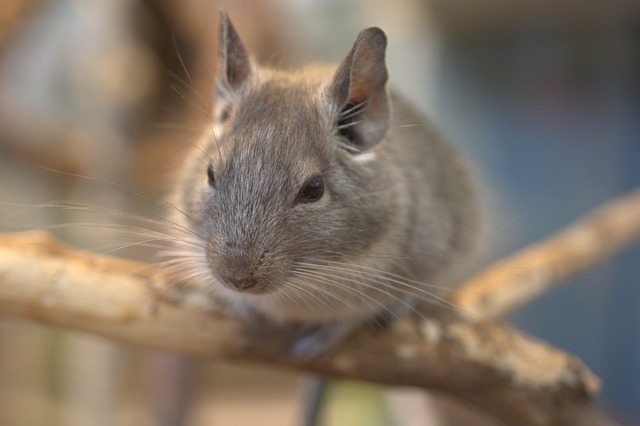Chinchillas are adorable and fluffy creatures that make great pets. They are known for their soft fur and playful personalities, but do they hold grudges? This is a question that many chinchilla owners may wonder about.
While chinchillas are intelligent animals, they do not have the same emotional capacity as humans. They cannot hold grudges in the same way we do. However, chinchillas can remember negative experiences and may become fearful or defensive in certain situations.
It is essential for chinchilla owners to understand their pet’s behavior and how to care for them properly. Owners can ensure their pets are happy and healthy by learning more about chinchilla behavior.
In this article, we will explore whether or not chinchillas hold grudges and what owners can do to provide the best care for their furry friends.
Do Chinchillas Hold Grudges?
Chinchillas are cute and fluffy creatures known for their playful and social behavior. However, many chinchilla owners wonder whether their pets can hold grudges against them or other animals.
In this section, we will explore the factors that affect chinchilla behavior, memory capacity, and social behavior to answer the question: do chinchillas hold grudges?
Factors That Affect Chinchilla Behavior
Chinchillas are sensitive animals that can be easily stressed or frightened. Factors affecting their behavior include their living environment, diet, and interactions with other animals and humans.
For example, if a chinchilla is kept in a small and cramped cage, it may become agitated and aggressive. Similarly, if a chinchilla is not provided with a balanced diet, it may become irritable and lethargic.
Chinchilla’s Memory Capacity
Chinchillas have a good memory and can remember events and people for a long time. However, their memory is not as strong as that of humans or other animals. For example, Chinchillas can remember their owners’ voices and scents but may not remember specific events or actions that caused them stress or discomfort.
Chinchilla’s Social Behavior
Chinchillas are social animals that enjoy the company of other chinchillas. They communicate through vocalizations, body language, and scent marking.
However, chinchillas can also become territorial and aggressive towards other animals or humans they perceive as threatening.
In conclusion, while chinchillas are social and intelligent animals, they do not hold grudges as humans do. Their living environment, diet, and interactions with other animals and humans influence their behavior.
Therefore, chinchilla owners must provide their pets with a comfortable and stimulating environment, a balanced diet, and positive interactions to ensure their well-being.
Signs of Chinchilla’s Displeasure
Chinchillas are known for their adorable and playful nature but can also be quite sensitive creatures. If they feel threatened or mistreated, they may show signs of displeasure. Here are some of the signs that your chinchilla may not be happy:
Physical Signs
- Flattened ears: Chinchillas will flatten their ears against their head when scared or angry.
- Hissing or growling: Chinchillas may hiss or growl when they feel threatened or upset.
- Teeth are chattering: Chinchillas may chatter their teeth when they are angry or frustrated.
- Fur standing up: When a chinchilla is upset, their fur may stand up on end.
Behavioral Signs
- Hiding: If a chinchilla feels upset, it may hide in its cage or a corner.
- Refusing treats: Chinchillas love treats, so if they refuse them, it may be a sign that they are not feeling well.
- Aggression: Chinchillas may become aggressive if they feel threatened or mistreated.
- Excessive grooming: Chinchillas may groom themselves excessively when stressed or anxious.
It is essential to pay attention to your chinchilla’s behavior and body language to ensure that they are happy and healthy. If you notice these signs, it may be time to give your chinchilla extra love and attention.
How to Prevent Chinchilla’s Grudges
Creating a Comfortable Environment
Chinchillas are susceptible animals and require a comfortable environment to thrive. To prevent chinchillas’ grudges, ensuring their cage is clean, spacious, and well-ventilated is essential. In addition, the cage should be in a quiet house area, away from loud noises and direct sunlight.
Chinchillas also need plenty of toys and activities to keep them occupied, such as chew toys, tunnels, and exercise wheels.
Training and Socialization
Chinchillas are social animals and need regular interaction with their owners to prevent grudges. Therefore, spending time with your chinchilla every day is essential, playing with them and providing them with affection.
Training your chinchilla to come when called and to perform simple tricks can also help to strengthen the bond between you and your pet.
Socialization is also crucial for preventing chinchilla’s grudges. If you have more than one chinchilla, make sure they are introduced to each other slowly and carefully.
Chinchillas can be territorial, so providing each chinchilla with its own space and resources, such as food and water bowls, toys, and hiding places, is essential.
Overall, preventing chinchilla’s grudges requires a lot of patience, time, and effort. However, creating a comfortable environment and regular training and socialization can help your chinchilla feel happy and loved.




